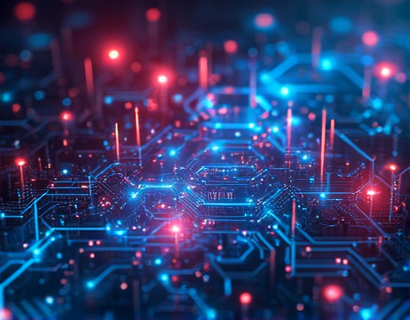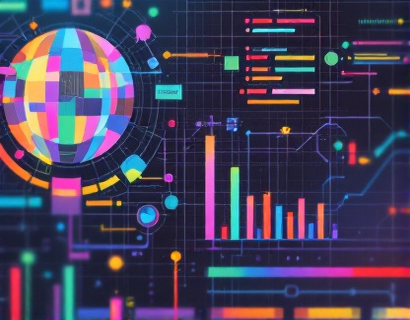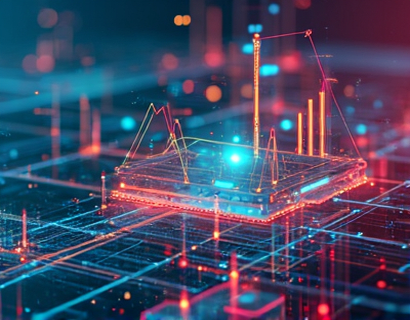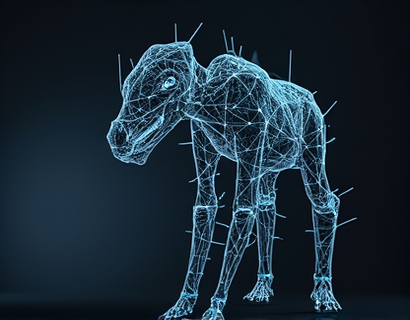Decentralized Authentication: Empowering Businesses with Advanced Identity Solutions for Enhanced Security and Efficiency
In the digital age, the importance of robust identity management cannot be overstated. As businesses increasingly rely on digital platforms to conduct operations, the need for advanced authentication methods that ensure both security and efficiency becomes paramount. Decentralized authentication solutions are at the forefront of this revolution, offering a transformative approach to identity management. These solutions leverage blockchain technology and distributed networks to provide a more secure, efficient, and user-friendly experience compared to traditional centralized systems.
Decentralized authentication is fundamentally different from conventional methods. In a centralized system, a single entity, often a server or a database, holds and manages all user credentials. This central point of control is a significant vulnerability, as it becomes a prime target for hackers. In contrast, decentralized authentication distributes the responsibility of managing identities across a network of nodes, eliminating the single point of failure. This distributed approach not only enhances security but also improves operational efficiency by reducing the load on central servers.
The core principle behind decentralized authentication is the use of cryptographic techniques to secure and verify identities. Each user has a unique cryptographic key pair, consisting of a private key known only to the user and a public key that is shared with the system. When a user attempts to authenticate, the system uses the public key to verify the signature created with the private key. This process ensures that only the rightful owner can access the system, providing a high level of security.
One of the most significant advantages of decentralized authentication is its ability to enhance data protection. By eliminating the need for centralized databases, the risk of large-scale data breaches is significantly reduced. Even if one node in the network is compromised, the attacker would still need to breach multiple nodes to gain unauthorized access, a task that is computationally infeasible. This distributed nature of decentralized systems makes them inherently more resilient against cyber threats.
Moreover, decentralized authentication solutions offer improved user experiences. Traditional authentication methods often involve cumbersome processes such as remembering complex passwords and dealing with frequent reset requests. Decentralized systems can integrate with digital wallets and biometric devices, allowing for seamless and frictionless authentication. Users can access multiple services with a single identity, streamlining their digital interactions and enhancing convenience.
The implementation of decentralized authentication in businesses brings numerous benefits. For starters, it enhances security by reducing the risk of unauthorized access and data breaches. This is crucial for industries handling sensitive information, such as finance, healthcare, and government sectors. By adopting decentralized authentication, businesses can comply with stringent regulatory requirements more effectively, as these systems provide transparent and auditable logs of all authentication attempts.
Efficiency is another key advantage. Decentralized authentication reduces the overhead on central servers, leading to faster response times and lower operational costs. The distributed nature of these systems allows for scalable solutions that can handle a growing number of users without compromising performance. This scalability is particularly beneficial for businesses experiencing rapid growth or dealing with fluctuating user loads.
Decentralized authentication also promotes greater user control over personal data. In a decentralized model, users have full ownership of their identity data, which they can manage and share as they see fit. This shift empowers users and builds trust, as they are more confident in the security and privacy of their information. For businesses, this trust translates into stronger customer relationships and increased loyalty.
To fully leverage the benefits of decentralized authentication, businesses need to adopt appropriate technologies and frameworks. Blockchain-based identity platforms are a popular choice, offering a secure and transparent way to manage identities. These platforms use smart contracts to automate and enforce authentication rules, ensuring consistency and reliability. Additionally, integrating decentralized authentication with existing systems can be achieved through APIs and middleware solutions, minimizing disruption and maximizing compatibility.
One of the leading technologies in decentralized authentication is Self-Sovereign Identity (SSI). SSI empowers individuals to control their digital identities without relying on intermediaries. By using decentralized identifiers (DIDs) and verifiable credentials, SSI provides a flexible and secure framework for identity management. This approach not only enhances security but also complies with privacy regulations such as GDPR, as users can selectively share their data.
Another important aspect of decentralized authentication is interoperability. As different systems and platforms adopt various decentralized identity solutions, ensuring seamless interaction between them becomes crucial. Standards such as W3C's Decentralized Identifiers (DIDs) and the InterPlanetary File System (IPFS) play a vital role in fostering interoperability, allowing different decentralized systems to communicate and share data effectively.
The adoption of decentralized authentication is not without challenges. One of the primary hurdles is the need for widespread education and awareness. Many businesses and users are still unfamiliar with the concepts and benefits of decentralized systems. Educational initiatives and case studies demonstrating the success of decentralized authentication can help drive adoption.
Technical complexity is another challenge. Implementing decentralized authentication requires a solid understanding of blockchain and cryptographic principles. Businesses may need to invest in training or partner with experts to ensure a smooth transition. However, the long-term benefits in terms of security and efficiency make this investment worthwhile.
Regulatory compliance is also a consideration. While decentralized authentication can help meet regulatory requirements, businesses must ensure that their implementation adheres to local and international laws. This includes data protection regulations, anti-money laundering (AML) laws, and know-your-customer (KYC) requirements. Collaborating with legal experts can help navigate these complexities and ensure compliance.
Looking to the future, the potential of decentralized authentication is vast. As more industries recognize the value of advanced identity solutions, the demand for decentralized authentication services is expected to grow. Innovations in areas such as zero-knowledge proofs and quantum-resistant cryptography will further enhance the security and efficiency of these systems. The integration of decentralized authentication with emerging technologies like the Internet of Things (IoT) and 5G networks will open new possibilities for secure and efficient identity management.
In conclusion, decentralized authentication represents a significant leap forward in identity management for businesses. By offering enhanced security, improved efficiency, and greater user control, these solutions address the critical needs of modern enterprises. As the technology matures and adoption increases, decentralized authentication will play an increasingly vital role in shaping the future of digital security and operational excellence.











































